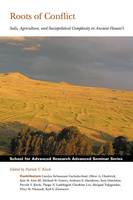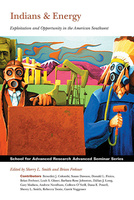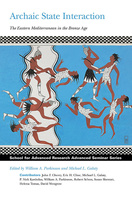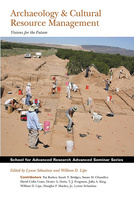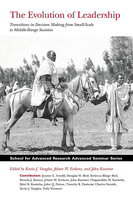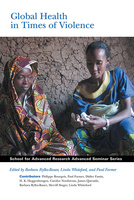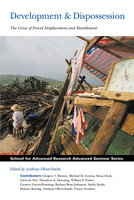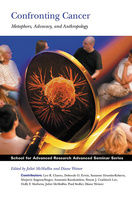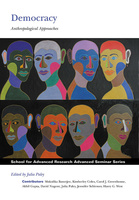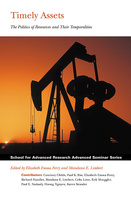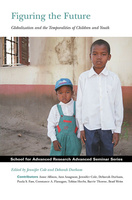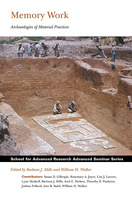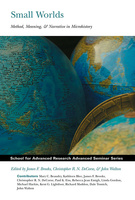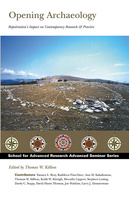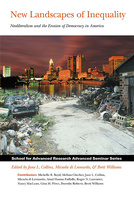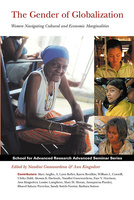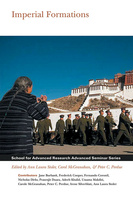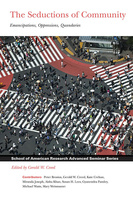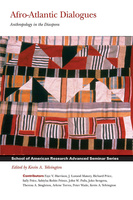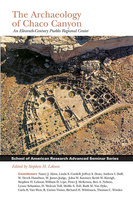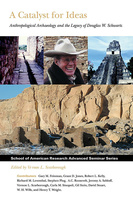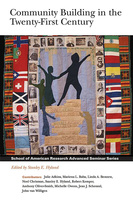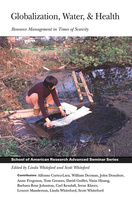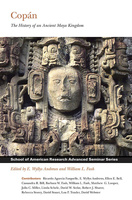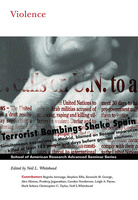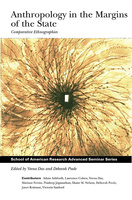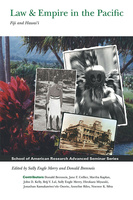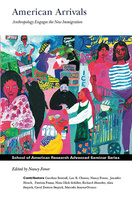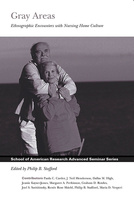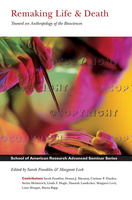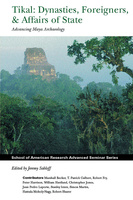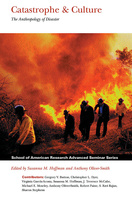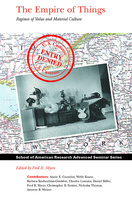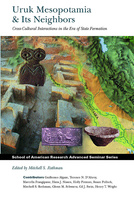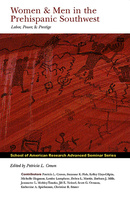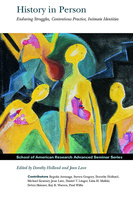Pharmaceutical Self
The Global Shaping of Experience in an Age of Psychopharmacology
This book addresses a critical contemporary issue--the worldwide proliferation of pharmaceutical use. The contributors explore questions such as: How are culturally constituted selves transformed by regular ingestion of pharmaceutical drugs? Does "being human" increasingly come to mean not only oriented to drugs but also created and regulated by them? From the standpoint of cultural phenomenology, does this reshape human "being"?
Roots of Conflict
Soils, Agriculture, and Sociopolitical Complexity in Ancient Hawai'i
Roots of Conflict presents the efforts of a team of social and natural scientists to understand the complex, systemic linkages between land, climate, crops, human populations, and their cultural structures.
Indians and Energy
Exploitation and Opportunity in the American Southwest
The authors consider the complex relationship between development and Indian communities in the Southwest in order to reveal how an understanding of patterns in the past can guide policies and decisions in the future.
Archaic State Interaction
The Eastern Mediterranean in the Bronze Age
By using a specific case study, the contributors to this book aim to help establish a common theoretical ground for investigating how humans and the societies they built interacted over time.
Archaeology and Cultural Resource Management
Visions for the Future
By most estimates, as much as 90 percent of the archaeology done in the United States today is carried out in the field of cultural resource management. The contributors hope that this book will serve as an impetus in American archaeology for dialogue and debate on how to make CRM projects and programs yield both better archaeology and better public policy.
The Evolution of Leadership
Transitions in Decision Making from Small-Scale to Middle-Range Societies
This book brings together the perspectives of cultural anthropologists and archaeologists to explore why and how leadership emerges and variously becomes institutionalized among disparate human societies.
Global Health in Times of Violence
Over 24 million people have died in these conflicts, and millions more suffered illness and injury. In this volume, leading scholars and practitioners examine the impact of structural, military, and communal violence on health, psychosocial well-being, and health care delivery. By investigating the fields of violence that define our modern world, the authors are able to provide alternative global health paradigms that can be used to develop more effective policies and programs.
Development and Dispossession
The Crisis of Forced Displacement and Resettlement
Resettlement has been so poorly planned, financed, implemented, and administered that these projects end up being "development disasters." Because there can be no return to land submerged under a dam-created lake or to a neighborhood buried under a stadium or throughway, the solutions devised to meet the needs of people displaced by development must be durable. The contributors to this volume analyze the failures of existing resettlement policies and propose just such durable solutions.
Confronting Cancer
Metaphors, Advocacy, and Anthropology
In this book, anthropologists examine the lived experiences of individuals confronting cancer and reveal the social context in which prevention and treatment may succeed or fail.
Democracy
Anthropological Approaches
While previous scholars of democracy have proposed one definitive model after another, the authors in this work suggest that democracy is by nature an open ended set of questions about the workings of power--questions best engaged through the dialogical processes of fieldwork and ethnographic writing.
Timely Assets
The Politics of Resources and Their Temporalities
Oil is running out. What's more, its final depletion, once relegated to a misty future, now seems imminent. In all the more or less apocalyptic discussions of oil and similar depleted resources, nature, labor, and time converge. This volume focuses on how resources, resource-making, and resource-claiming are entangled with experiences of time.
Figuring the Future
Globalization and the Temporalities of Children and Youth
Child laborers in South Asia, child soldiers in Sierra Leone and Uganda, Chinese youth playing computer games to earn virtual gold, youth involved in sex trafficking in the former Soviet republics and Thailand: these are just some of the young people featured in the news of late. To address how and why youth and children have come to seem so important to globalization, the contributors to this book look at the both the spatial relations and the temporal dimensions of globalization in places as far apart as Oakland, California, and Tamatave, Madagascar, in situations as disparate as the idealization of childhood innocence and the brutal lives of street children.
Memory Work
Archaeologies of Material Practices
Memory making is a social practice that links people and things together across time and space and ultimately has material consequences. The intersection of matter and social practice becomes archaeologically visible through the deposits created during social activities. The contributors to this volume share a common goal to map out the different ways in which to study social memories in past societies programmatically and tangibly.
Small Worlds
Method, Meaning, and Narrative in Microhistory
Growing unease with grand theories of modernization and global integration brought twelve scholars from four disciplines to the School for Advanced Research for an experiment with the research genre known as microhistory. These authors now call for a return to narrative, detailed analysis on a small scale, and the search for unforeseen meanings embedded in cases.
Opening Archaeology
Repatriation's Impact on Contemporary Research and Practice
In 1989-90, Congress enacted two laws, the National Museum of the American Indian Act and the Native American Graves Protection and Repatriation Act, that required museums and other repositories of Native American human remains and cultural items to consult with, share information about, and return some items to federally recognized Indian tribes and Native Alaskan and Hawaiian communities.
New Landscapes of Inequality
Neoliberalism and the Erosion of Democracy in America
Focusing on the United States, the contributors to this volume analyze how the globalization of newly untrammeled capitalism has exacerbated preexisting inequalities, how the retreat of the benevolent state and the rise of the punitive, imperial state are related, how poorly privatized welfare institutions provide services, how neoliberal and neoconservative ideologies are melding, and how recurrent moral panics misrepresent class, race, gendered, and sexual realities on the ground.
The Gender of Globalization
Women Navigating Cultural and Economic Marginalities
As "globalization" moves rapidly from buzzword to cliché, evaluating the claims of neoliberal capitalism to empower and enrich remains urgently important. The authors in this volume employ feminist, ethnographic methods to examine what free trade and export processing zones, economic liberalization, and currency reform mean to women in Argentina, Sri Lanka, Mexico, Ghana, the United States, India, Jamaica, and many other places.
Imperial Formations
The contributors to this volume critique and abandon the limiting assumption that the European colonialism of the late nineteenth and early twentieth centuries can be taken as the representative form of imperialism. Recasting the study of imperial governance, forms of sovereignty, and the imperial state, the authors pay close attention to non-European empires and the active trade in ideas, practices, and technologies among empires, as well as between metropolitan regions and far-flung colonies.
The Evolution of Human Life History
Human beings may share 98 percent of their genetic makeup with their nonhuman primate cousins, but they have distinctive life histories. When and why did these uniquely human patterns evolve? To answer that question, this volume brings together specialists in hunter-gatherer behavioral ecology and demography, human growth, development, and nutrition, paleodemography, human paleontology, primatology, and the genomics of aging.
The Seductions of Community
Emancipations, Oppressions, Quandaries
The concept of "community" is ubiquitous in the way we talk and think about life in the twenty-first century. Political and economic projects from rain forest conservation to urban empowerment zones focus on "the community" as the appropriate vehicle and target of change.
Afro-Atlantic Dialogues
Anthropology in the Diaspora
This book breaks new theoretical and methodological ground in the study of the African diaspora in the Atlantic world. Leading scholars of archaeology, linguistics, and socio-cultural anthropology draw upon extensive field experiences and archival investigations of black communities in North America, the Caribbean, South America, and Africa to challenge received paradigms in Afro-American anthropology.
The Archaeology of Chaco Canyon
An Eleventh-Century Pueblo Regional Center
The site of a great Ancestral Pueblo center in the 11th and 12th centuries AD, the ruins in Chaco Canyon look like a city to some archaeologists, a ceremonial center to others. Chaco and the people who created its monumental great houses, extensive roads, and network of outlying settlements remain an enigma in American archaeology.
A Catalyst for Ideas
Anthropological Archaeology and the Legacy of Douglas W. Schwartz
In his thirty-four years as president of the School of American Research, Douglas W. Schwartz's far-reaching vision placed SAR on the intellectual edge of research about humans across the globe. Nowhere is this more evident than in his influence on the field of anthropological archaeology.
Community Building in the Twenty-First Century
"Community" has long been a critical concept for social scientists, and never more so amid the growing economic inequity, natural and human disasters, and warfare of the opening years of the twenty-first century. In this volume, leading scholar-activists develop a conceptual framework for both the theory and practice of building communities.
Globalization, Water, and Health
Resource Management in Times of Scarcity
This book is about crime and passion, life and death, lofty goals and squalid realities. It is a book about water. Global disparities in health and access to water are two major threats to world stability.
The Archaeology of Colonial Encounters
Comparative Perspectives
Colonialism and its legacies have emerged as one of the most important research topics in anthropology. Indeed, we now understand that colonialism gave rise to and shaped the discipline. However, the understanding of colonization in anthropology, history, and other fields derives largely from studies of European expansion.
Copán
The History of an Ancient Maya Kingdom
This volume collects leading scholarship on one of the most important archaeological complexes in the ancient Maya world. The authors-internationally renowned experts who participated in the long-running Copán Acropolis Archaeological Project-address enduring themes in Maya archaeology.
Violence
Can we understand violence not as evidence of cultural rupture but as a form of cultural expression itself? Ten prominent scholars engage this question across geographies as diverse at their theoretical positions, in cases drawn from fieldwork in Indonesia, Cambodia, Mozambique, Rwanda, Sierra Leone, South Africa, South America, Sri Lanka, Spain, and the United States.
Anthropology in the Margins of the State
The very form and reach of the modern state are changing radically under the pressure of globalization. Featuring nine of the leading scholars in the field, this innovative exploration of these transformations develops an ethnographic methodology and theoretical apparatus to assess perceptions of power in three regions where state reform and violence have been particularly dramatic: Africa, Latin America, and South Asia.
Pluralizing Ethnography
Comparison and Representation in Maya Cultures, Histories, and Identities
This volume brings together eight Maya specialists and a prominent anthropological theorist as discussant to assess the contrasting historical circumstances and emerging cultural futures of Maya in Mexico and Guatemala.
Law and Empire in the Pacific
Fiji and Hawai`i
Focusing on the intimate relationship between law, culture, and the production of social knowledge, these essays re-center law in social theory. The authors analyze the transition from chiefdom to capitalism, colonizers' racial and governmental ideologies, land and labor policies, and contemporary efforts to recuperate indigenous culture and assert or maintain indigenous sovereignty. Speaking to Fijian and Hawaiian circumstances, this volume illuminates the role of legal and archival practice in constructing ethnic and political identities and producing colonial and anthropological knowledge.
American Arrivals
Anthropology Engages the New Immigration
Soaring immigration to the United States in the past few decades has reawakened both popular and scholarly interest in this important issue. American Arrivals highlights the important insights of anthropology for the field of migration studies.
Gray Areas
Ethnographic Encounters with Nursing Home Culture
This volume features ten scholars from anthropology, nursing, sociology, gerontology, human geography, and other disciplines who provide ethnographic case studies exploring critical care decision-making, models of care for people with Alzheimer's disease, the way residents cope with the limitations, indignities, and opportunities of nursing home life, the roles of family members and nursing home employees, and the formulation of assisted living.
Remaking Life and Death
Toward an Anthropology of the Biosciences
The boundaries of life now occupy a place of central concern among biological anthropologists. Because of the centrality of the modern biological definition of life to Euro-American medicine and anthropology, the definition of life itself and its contestation exemplify competing uses of knowledge.
Tikal: Dynasties, Foreigners, and Affairs of State
Advancing Maya Archaeology
New insights from the Tikal excavations and epigraphic breakthroughs suggest that a thriving marketplace existed in the center of the city, that foreigners comprised a significant element of its populace, and that differences in tomb form and contents signal the changing fortunes of Tikal's rulers.
Catastrophe and Culture
The Anthropology of Disaster
At a time of increasing globalization and worldwide vulnerability, the study of disasters has become an important focus for anthropological research-one where the four fields of anthropology are synthesized to address the multidimensionality of the effects to a community's social structures and relationship to the environment.
The Empire of Things
Regimes of Value and Material Culture
Representing a new wave of thinking about material culture studies-a topic long overdue for reevaluation-the essays in this volume take a fresh look at the relationship between material culture and exchange theory and illuminate the changing patterns of cultural flow in an increasingly global economy and the cultural differences registered in "regimes of value."
Uruk Mesopotamia and Its Neighbors
Cross-cultural Interactions in the Era of State Formation
In Uruk Mesopotamia and Its Neighbors, ten field and theoretical archaeologists working in the area today offer an overview and analysis of new data and interpretations for Greater Mesopotamia during the late fifth and fourth millennia B.C.
Women and Men in the Prehispanic Southwest
Labor, Power, and Prestige
Women and Men in the Prehispanic Southwest takes a groundbreaking look at gendered activities in prehistory and the differential access that women and men had to sources and symbols of power and prestige.
History in Person
Enduring Struggles, Contentious Practice, Intimate Identities
Extended conflict situations in Northern Ireland or South Africa, the local effects of the rise of multinational corporations, and conflicts in workplaces, households, and academic fields are all crucibles for the forging of identities. In this volume, the authors bring their research to bear on enduring struggles and the practices of identity within those struggles. This collection of essays explores the innermost, generative aspects of subjects as social, cultural, and historical beings and raises serious questions about long-term conflicts and sustained identities in the world today.


